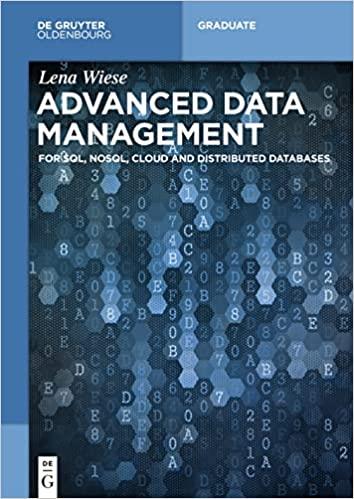Answered step by step
Verified Expert Solution
Question
1 Approved Answer
( C + + ) Refactor the Binary class to add one or more proxies to generate the desired output. Overload a COMBO combination of
CRefactor the Binary class to add one or more proxies to generate the desired output.
Overload a COMBO combination of AND XOR to change its behavior.
o Instead of doing the binary operations do a three element addition.
o a & b c a b c
Do not ADD any files to the project
No free functions do all overloading inside classes as methods
No modern C
o No Lambdas, Autos, templates, etc...
o No Boost
NO Streams
o Used fopen, fread, fwrite...
No code in MACROS
o Code needs to be in cpp files to see and debug it easy
Exception:
o implicit problem needs templates
Binary.h
cpp
#ifndef BINARYH
#define BINARYH
struct Binary
Binary;
Binaryunsigned int x;
Binaryconst Binary &r;
~Binary;
Binary operator const Binary &r;
struct XOR;
struct AND;
struct COMBO;
XOR operator const Binary& r const;
AND operator & const Binary& r const;
COMBO operator & const XOR& r const; TODO : Need to Fix.
operator unsigned int const;
Data: do not add or modify the data
unsigned int x;
;
struct Binary::XOR
XORconst Binary& a const Binary& b;
operator Binary const;
operator unsigned int const;
const Binary& a;
const Binary& b;
;
struct Binary::AND
ANDconst Binary& a const Binary& b;
operator Binary const;
operator unsigned int const;
const Binary& a;
const Binary& b;
;
struct Binary::COMBO
COMBOconst Binary& a const XOR& b;
operator Binary const;
operator unsigned int const;
const Binary& a;
const XOR& b;
;
#endif
End of File
Binary.cpp
cpp
#include "Binary.h
Binary::Binary DO NOT MODIFY
thisx ;
Binary::Binaryunsigned int x DO NOT MODIFY
thisx x;
Binary::Binaryconst Binary& r DO NOT MODIFY
thisx rx;
Binary::~Binary DO NOT MODIFY
Binary Binary::operator const Binary& r DO NOT MODIFY
thisx rx;
return this;
Binary::XOR Binary::operator const Binary& r const
return XORthis r;
Binary::AND Binary::operator & const Binary& r const
return ANDthis r;
Binary::COMBO Binary::operator & const XOR& r const TODO : Need to fix
return COMBOthis r;
Binary::operator unsigned int const
return thisx;
Binary::XOR::XORconst Binary& a const Binary& b : aa bb
Binary::XOR::operator Binary const
return Binaryax bx;
Binary::XOR::operator unsigned int const
return ax bx;
Binary::AND::ANDconst Binary& a const Binary& b : aa bb
Binary::AND::operator Binary const
return Binaryax & bx;
Binary::AND::operator unsigned int const
return ax & bx;
Binary::COMBO::COMBOconst Binary& a const XOR& b : aa bb
Binary::COMBO::operator Binary const
return Binaryax bax bbx;
Binary::COMBO::operator unsigned int const
return ax bax bbx;
End of File
Sample Test Code :
Combo
Binary ax;
Binary ax;
Binary ax;
Binary aBinary;
unsigned int aValue;
Binary tBinary;
unsigned int tValue;
Binary ttBinary;
unsigned int ttValue;
Trace::outaxx
ax;
Trace::outaxx
ax;
Trace::outaxx
ax;
Trace::out
;
aBinary a & a a;
aValue a & a a;
Trace::outaBinary a & a axx
aBinary.x;
Trace::outaValue a & a axx
aValue;
Trace::out
;
Sample Test Output :
ax
ax
ax
aBinary a & a ax
aValue a & a ax
However, the problem currently occurring in the above code output :
ax
ax
ax
aBinary a & a ax
aValue a & a ax
The test fails, x is an invalid output.
If I calculate a & aand a a separately
a & ax
a ax
it seems like aa should be calculated first to get the result of x but I don't know how.
Please modify the COMBO part so that I get the same result as the sample output,
a & a ax
NEVER NEVER NEVER Chenge test code to like a & a a
Please fix Binary.h and Binary.cpp
Chegg give wrong answer. I didn't ask about Java project in NetBeans
Step by Step Solution
There are 3 Steps involved in it
Step: 1

Get Instant Access to Expert-Tailored Solutions
See step-by-step solutions with expert insights and AI powered tools for academic success
Step: 2

Step: 3

Ace Your Homework with AI
Get the answers you need in no time with our AI-driven, step-by-step assistance
Get Started


